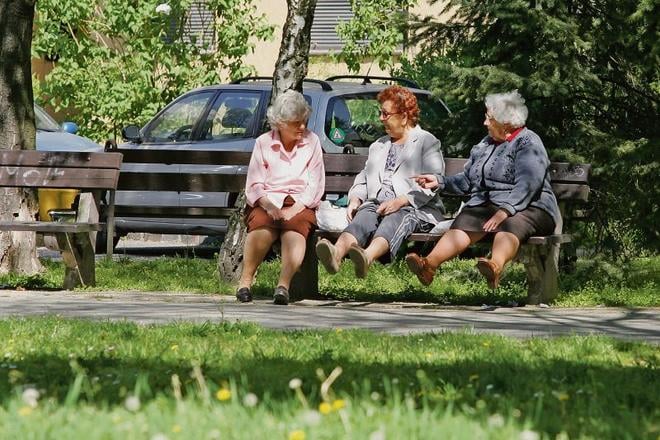Even though experts see it as sheer populism, the main ruling party of Robert Fico, Smer, continues in its efforts to cap the retirement age in Slovakia. On Friday, May 25, its parliamentary deputies sent a draft revision to parliament which would cap the retirement age at 64 years for men. The cap for women is defined more broadly and their retirement age would be lower.
With this proposal Smer is seeking to appeal to the minor coalition party the SNS, as it originally proposed that men and childless women should retire at the age of 65, women with one child at 64 and women with two or more children at 63 years.
Smer also intends this bill to anchor the minimum wage.

The introduction of a retirement age cap when the age of people is growing significantly is a harsh populism,” Vladimír Baláž, economist from the Institute for Forecasting of the Slovak Academy of Sciences, told the Pravda daily. “Unfortunately, it will be the next generations who will pay for this.”
Searching for support
Smer still does not yet have enough support in parliament to have this legislation passed. As the new law will be a constitutional one, they need to find at least 90 deputies in the 150-member parliament to support it. They want to use the summer for negotiations and have the bill passed in the autumn.
But the minor ruling party Most-Híd does not like the idea of capping the retirement age and have clearly said that they will not vote for it. Instead, Most-Híd is offering their own bill on social insurance, proposing that the retirement age should be published in a comprehensible and transparent manner five years in advance. The party will submit the bill at the next parliamentary session.
“Our caucus has agreed that we will not vote for the constitutional law, as we do not support the retirement age cap,” said Irén Sárközy, MP for Most-Híd, as cited by the TASR newswire. “We do understand the arguments of our coalition partner, but we’re addressing something that will happen in 2035, and we don’t know what the demographic situation in the country will be at that time. Therefore, we’re unable to approach it in a reasonable manner today.”
Most-Híd informed their coalition partners about their decision. Smer are also discussing the change with the opposition parties.
“We understand that they are approaching other political parties to support the law,” said Most-Híd vice-chair, Ivan Švejna.
Most-Híd claims that the idea of the retirement cap lacks factual calculations and it does not take into consideration the negative demographic development in Slovakia. It also calls for serious analyses.
“There’s no getting around the facts, the demography is what it is,” said Švejna during a TV discussion programme. “We’re facing great challenges. I haven’t yet seen any serious calculations.”
The Freedom and Solidarity (SaS) party as well as MPs around Miroslav Beblavý and Jozef Mihál reject the cap.
“We aren’t surprised by the draft law,” said MP Miroslav Beblavý, leader of the extra-parliamentary party Spolu . “Since he joined politics, Robert Fico has been a thief of future pensions.”
Opposition's sympathetic ear
Smer is finding a sympathetic ear with some opposition parties though. The Ordinary People and Independent Personalities (OĽaNO) submitted a similar proposal last year.
“Not one Smer deputy raised a hand for it at that time,” Igor Matovič, head of OĽaNO, recalled for the private broadcaster TV Markíza, adding that they are going to re-submit it. “Smer deputies may not vote for it again, but they have adopted the idea as has happened in the past. So if our conditions are met, we may support it.”
First of all, OľaNo demands that if the retirement age cap is set at 65, women should retire one year earlier for every child they bring up that at least completes secondary vocational school.
At the same time, they demand that for women who go into early retirement, the extra retirement years are considered years worked, so their pension for retiring earlier is not reduced.
“Unlike Smer, we demand that for women, these years be counted as years worked,” he said.
The opposition We Are Family party of Boris Kollár has also admitted the possibility of supporting Smer’s proposal.
The situation now
Slovakia’s old-age pension scheme changed at the beginning of 2017 so that the retirement age is annually extended depending on average life expectancy, with no fixed upper limit. This means that the retirement age of 62 years increased by 76 days in 2017 while in 2018 it has been boosted by an additional 63 days to 62 years and 139 days.
Fico has calculated that under this scheme the retirement age should increase to 65 in 2035-2037.


 The old-age pension scheme will change, again. (source: SME)
The old-age pension scheme will change, again. (source: SME)